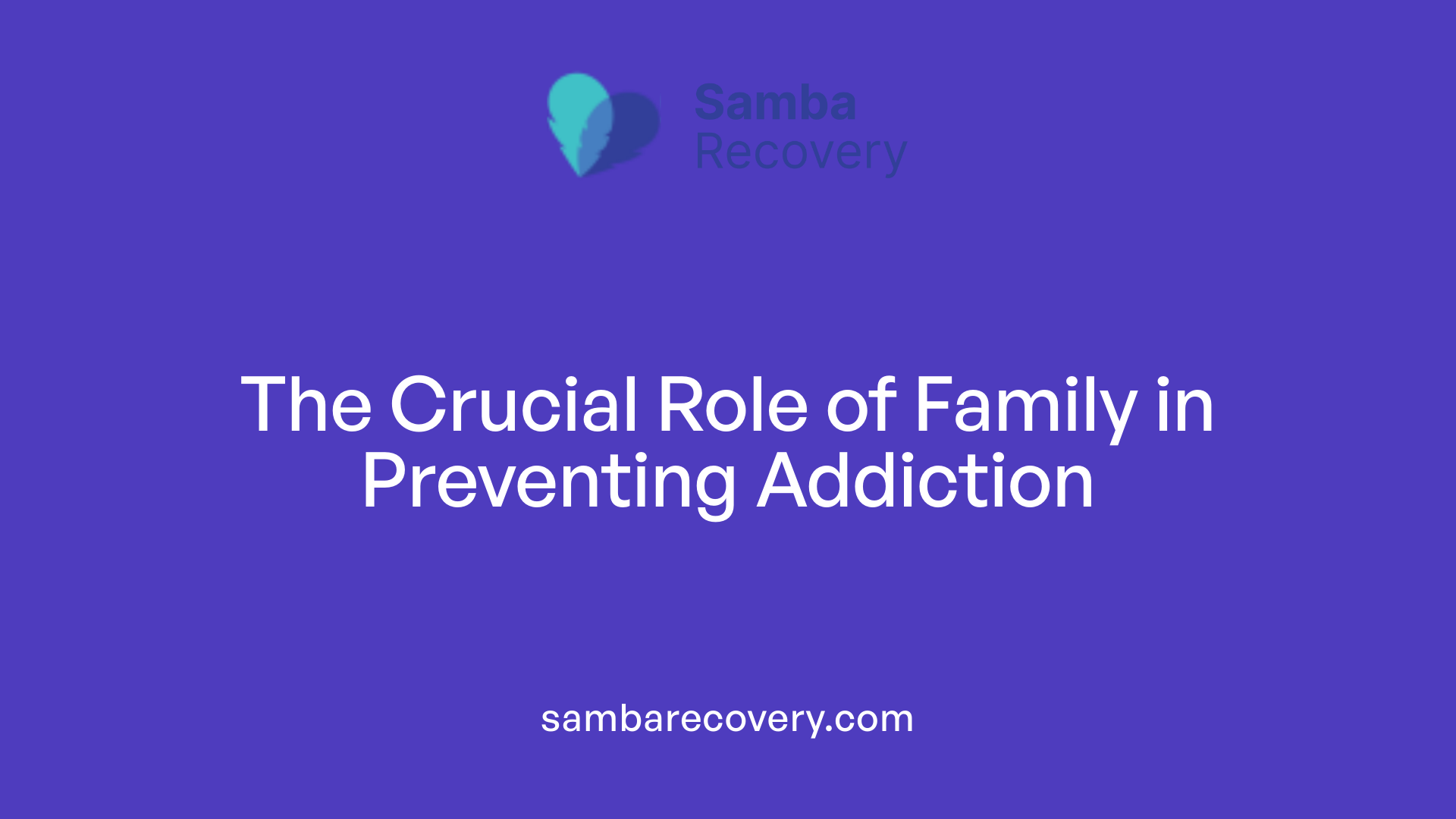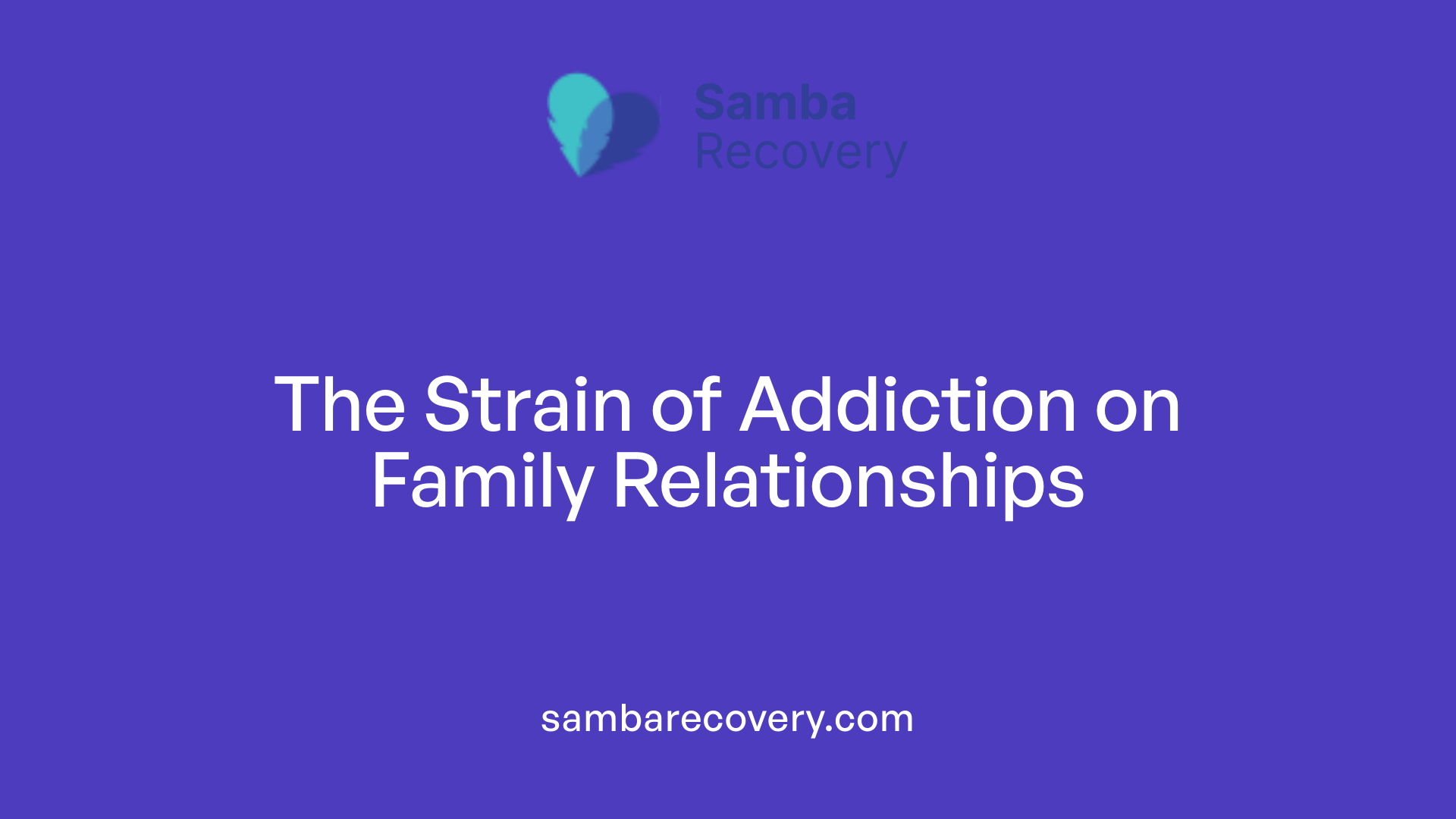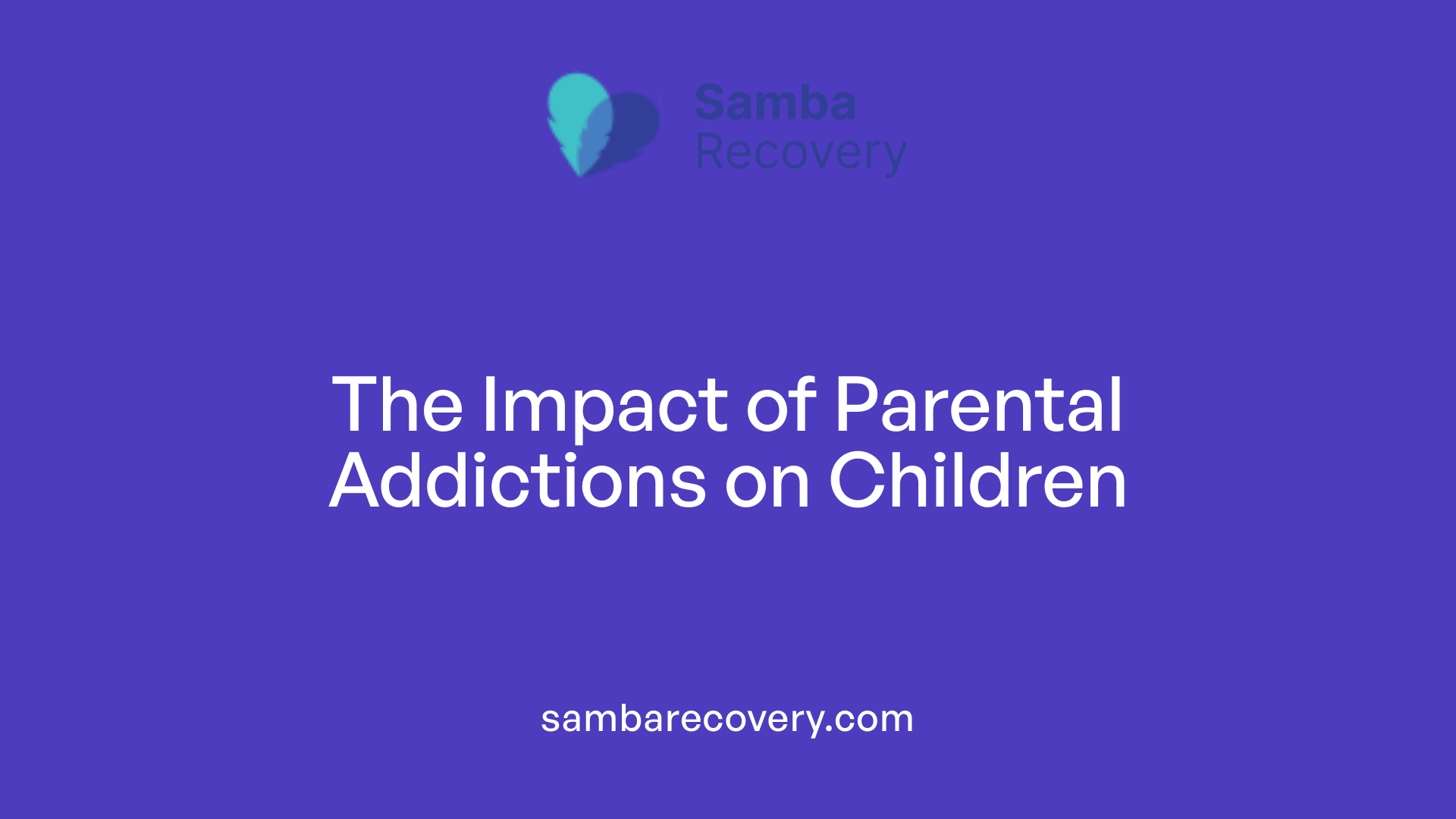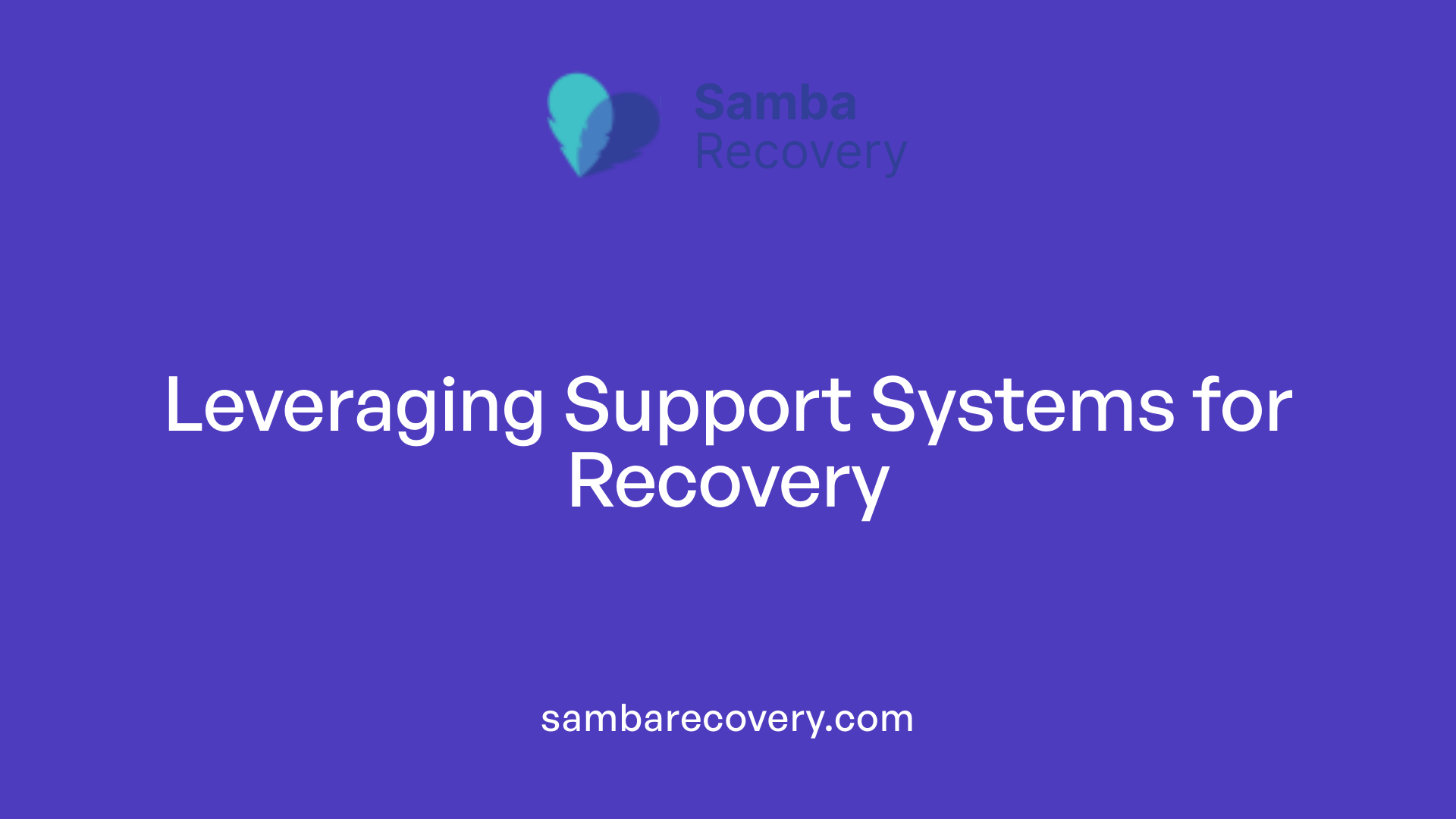Understanding Family Triggers in Addiction
Family dynamics play a critical role in the development, progression, and recovery from addiction. Family triggers, encompassing emotional, environmental, and behavioral elements, are influential in shaping addiction pathways. Recognizing and addressing these triggers is essential for both preventing addiction and managing recovery.
Family’s Role in Preventing Addiction

What is the role of family in preventing addiction?
The role of family in preventing addiction is crucial, as parents are often the strongest influence on their children’s choices regarding substance use. Open and honest communication about the dangers of drugs, alcohol, and tobacco fosters a supportive environment that significantly reduces the likelihood of addiction.
How can parents communicate about the dangers of addiction?
Families should establish clear rules and spend quality time together, which helps build strong relationships. Parents need to model responsible behavior and actively correct misconceptions their children may have regarding substances. Discussing media portrayals of drug use can also help mitigate any potentially harmful influences.
What practices can parents adopt to model responsible behavior?
Additionally, parents must be aware of the signs of substance use. Trusting instincts to address any concerns directly can aid in early intervention. Consistent conversations about the immediate and long-term consequences of drug use empower children, enabling them to make healthy decisions and resist peer pressure.
How Family Dynamics Contribute to Addiction

How do family dynamics contribute to addiction?
Family dynamics greatly influence the susceptibility to addiction and the recovery process. Children who grow up in environments where parental substance use is prevalent, especially from fathers, often display neurobehavioral disinhibition. This condition can lead them to engage in substance use at later stages in life.
Impact of parental substance use
The relationship between parental substance use and addiction risk is profound. Children witness behaviors that normalize substance use, which can carry over to their own lives. Furthermore, parental neglect or chaotic environments heighten the probability of developing maladaptive coping mechanisms, such as substance misuse.
Conflict within familial relationships
Conflict within family relationships plays a critical role in addiction recovery. Studies have shown that individuals, particularly women, who experience high levels of conflict with their mothers report a lack of self-efficacy when it comes to maintaining abstinence. This suggests that healthy, supportive family relationships are vital in fostering confidence and emotional regulation during recovery.
Overall, constructive family dynamics can facilitate the recovery process, while ongoing familial conflict can increase the likelihood of relapse. Understanding these interactions helps tailor recovery programs to be more effective.
Impact of Addiction on Family Relationships

What is the impact of addiction on family dynamics and relationships?
Addiction profoundly alters family dynamics and relationships, introducing emotional distress, financial strain, and instability. Family members often grapple with the fallout of substance abuse, leading to a breakdown of trust and increased conflict. This turmoil can escalate to serious consequences like divorce or estrangement, further disrupting family cohesion.
Kids growing up in these environments face significant challenges. They may experience neglect and emotional trauma, which can predispose them to mental health issues such as anxiety and depression. Studies reveal that children of parents battling addiction are at a heightened risk of developing substance use disorders themselves, perpetuating a cycle of addiction across generations.
The entire family unit often experiences elevated stress levels due to addiction-related behaviors. This can manifest as anxiety, attachment disorders, and a pervasive sense of conflict within the household. In these scenarios, maintaining a supportive and understanding atmosphere is crucial for the health of every family member.
How important is family involvement in recovery?
Family involvement is critical in the recovery process. Engaging family members in treatment can foster open communication, addressing unhealthy dynamics while supporting the individual’s journey toward sobriety. Family therapy can provide the tools needed to rebuild trust and encourage a healthier environment, ultimately promoting sustained recovery and enhancing overall family relations.
Utilizing support groups and community resources, families can better navigate the challenges posed by addiction, enabling them to work together towards healing and resilience. As families strengthen their bonds, they significantly improve recovery outcomes, illustrating the importance of collective effort in overcoming addiction.
Influence of Parental Addictions on Children

How do parental addictions influence children?
Parental addictions significantly impact children through a mix of genetic and environmental factors. Research suggests that children of addicted parents face a fourfold increase in the risk of developing substance use issues themselves, an effect partially stemming from inherited genetic predispositions. Studies indicate that these genetic factors can account for 40-60% of the risk of addiction.
In addition to genetics, the environment plays a crucial role as well. Children exposed to substance abuse in the household often perceive such behavior as normal, leading them to adopt similar coping mechanisms for stress and emotional challenges. Furthermore, parental addictions can foster unstable home environments, which contribute to emotional distress such as anxiety and depression in children. This emotional turmoil can hinder healthy brain development, creating a foundation for maladaptive coping strategies that may persist into adulthood.
Cycle of addiction across generations
The consequences can extend across generations, establishing a cycle of addiction. As children internalize these experiences, they may be more likely to repeat such patterns in their own lives, entwining their struggles with those of their parents. This vicious cycle underscores the urgent need for intervention and support systems targeting affected families, which can disrupt this pattern of addiction and promote healthier behaviors in future generations.
Emotional and Psychological Effects on Family Members
What are the emotional and psychological effects of addiction on family members?
The emotional and psychological effects of addiction on family members are profound and multifaceted. Families often experience an initial shock and confusion when confronted with the reality of a loved one’s substance abuse. This shock can lead to a sense of disbelief and overwhelm, as they struggle to make sense of their new circumstances.
As time passes, social isolation and stigma emerge as significant challenges. Families may feel embarrassed or ashamed of their situation, which can prevent them from seeking help or sharing their struggles with others. This isolation exacerbates emotional distress, leading to feelings of hopelessness, anxiety, and depression.
Children in particular bear the brunt of these challenges. They may suffer from a range of adverse effects, including neglect, emotional instability, and low self-esteem. Living in a chaotic environment often increases their risk of developing substance use disorders themselves, perpetuating a cycle of addiction within the family. Ultimately, addiction creates a turbulent family dynamic that significantly impacts the well-being of all family members involved.
Strategies for Managing Family-Related Triggers
What strategies can help manage family-related triggers in recovery?
Managing family-related triggers during recovery is vital for long-term sobriety. Here are essential strategies:
Healthy Boundaries
Establishing healthy boundaries within family interactions is crucial. This helps prevent enabling behaviors that can undermine recovery efforts. Boundaries may include limiting discussions around substance use or setting rules for family gatherings.
Family Therapy
Engaging in family therapy can significantly strengthen communication and resolve dysfunctional dynamics impacting addiction. By addressing these issues collectively, families can better support each other towards recovery.
Continuous Support
Continuous family education about addiction and support is fundamental. Families need to understand addiction and its triggers to foster an environment conducive to recovery. This forms a solid backbone for the individual’s journey toward sobriety.
Self-Awareness and Coping Strategies
Developing self-awareness helps individuals identify specific triggers in the family environment. Implementing coping strategies while practicing mindfulness and establishing healthy routines can mitigate the impacts of emotional triggers.
Collaborative Recovery Plan
Creating a family recovery plan that promotes cooperation among treatment professionals and family members is beneficial. This plan can help manage triggers while celebrating milestones throughout the recovery process.
Characteristics of an Addictive Family
What are the characteristics of an addictive family?
Addictive families tend to prioritize the needs of the addict over the well-being of all family members. In such environments, roles become distorted, and boundaries are blurred. For instance, children may find themselves taking on parental responsibilities to fill the gaps left by an addicted parent. This role reversal can lead to chaos and a lack of support necessary for healthy child development.
Communication styles within addictive families often reflect dysfunction. Instead of fostering open and honest discussions, conversations might be filled with guilt, fear, and suspicion. This environment stifles trust and leads to misunderstandings, further isolating individuals within the family unit.
Isolation is frequently a hallmark of addictive families. The stigma surrounding addiction can result in emotional suppression for family members, particularly children who may feel they cannot share their feelings or experiences with peers. Consequently, this isolation can manifest in behavior problems and may set the stage for future substance misuse as these children grow older. In summary, addictive families create an unstable and unpredictable environment, compounding the cycles of addiction and emotional distress that can persist across generations.
Types of Family Triggers and Their Impact
What Are Family Triggers?
Family triggers refer to specific stimuli within the family environment that can provoke cravings or lead to substance use for individuals in recovery. These triggers can be categorized into three primary types:
- Environmental Triggers: These are associated with particular places, people, or objects linked to past substance use. For instance, being around a parent who drinks or visiting a location tied to previous drug use can instigate cravings.
- Emotional Triggers: Emotions such as stress, anxiety, or depression often emerge from family dynamics. Children of addicted parents may develop heightened sensitivities to these emotional states, which can prompt a desire to self-medicate.
- Behavioral Triggers: These involve habitual patterns within family life that reinforce addictive behaviors. For example, enabling dynamics can create an environment that gracefully supports continued substance use.
How Do These Triggers Interplay with Addiction?
The interplay between family triggers and addiction dynamics is critical. A chaotic family environment can exacerbate emotional distress and increase the likelihood of relapse. Families who recognize and manage these triggers through open communication and establishing healthy boundaries can support their loved ones more effectively in overcoming addiction. Moreover, positive family dynamics are linked to better recovery outcomes, highlighting the importance of a supportive and understanding family environment.
The Intergenerational Impact of Addiction
Transmission of Trauma and Addiction
Addiction is often viewed as a family disease, influenced profoundly by family dynamics. When a parent struggles with substance use, the repercussions extend far beyond the individual. Children in these environments frequently inherit trauma, creating a cycle that perpetuates the risk of addiction. Studies reveal that nearly 1 in 10 children in the U.S. lives with a parent battling substance use disorder (SUD). This alarming statistic underscores the relational link between parental addiction and the likelihood of children developing similar issues later in life.
Role of Adverse Childhood Experiences
Adverse childhood experiences (ACEs), such as abuse or neglect, create maladaptive coping mechanisms. Children from these backgrounds may turn to substances as a means of dealing with emotional distress. This pattern of behavior leads to a troubling cycle where trauma begets addiction. Research indicates that about 25% of trauma survivors develop substance addiction problems, highlighting the significance of addressing family-related trauma during recovery efforts. Understanding these dynamics is crucial for breaking the cycle of addiction and fostering healthier family environments.
Family Therapy and Recovery
Benefits of Family Engagement
Family therapy serves as a vital component in the recovery process for individuals facing addiction. By involving family members, therapy promotes healing and fosters open communication regarding how each person’s behaviors impact the addiction cycle. When families engage in therapy, they can address their roles—such as enablers or caretakers—that might contribute to ongoing cycles of addiction.
The support derived from family involvement is shown to enhance recovery outcomes. Families undertaking these therapeutic journeys together can better manage emotional distress, reduce stigma, and collectively navigate triggers, thereby decreasing the likelihood of relapse.
Communication and Healing
Effective communication within the family setting is crucial for repairing relationships affected by addiction. In therapy, families learn to express their feelings and concerns in a safe environment, breaking down barriers and misunderstandings.
Addressing family dynamics can reveal patterns that perpetuate dysfunction. For example, unresolved traumas and enabling behaviors often emerge, guiding families toward healthier interactions. This transformation not only aids the individual in recovery but also fortifies the overall family unit, establishing a foundation for mutual support and resilience against future challenges.
Support Systems and Community Resources

Al-Anon and Similar Support Groups
For families affected by addiction, support groups like Al-Anon offer crucial resources and a sense of community. Al-Anon provides a safe space for relatives and friends of individuals struggling with addiction to share experiences, gain insights, and learn coping strategies that can enhance their emotional wellbeing. Participants find comfort in knowing they are not alone and can connect with others facing similar challenges.
Importance of Community Involvement
Community involvement is another vital element in the recovery journey. Engaging with local organizations that focus on addiction treatment and family support can empower families to navigate the complexities of addiction. These resources can include counseling services, educational workshops, and social activities aimed at cultivating resilience. Together, family support and community resources work hand-in-hand, promoting healing and providing a network that strengthens recovery efforts for both individuals with addiction and their families.
| Support Systems | Description | Benefits |
|---|---|---|
| Al-Anon | Support group for family members of addicts | Shared experiences, emotional support |
| Community Resources | Local organizations focused on addiction treatment | Counseling, workshops, social activities |
Conclusion: Healing Families, Healing Lives
Family dynamics are deeply entwined with addiction, offering both significant challenges and opportunities for healing. Recognizing family triggers and their profound impact is vital in crafting effective prevention and recovery strategies. By strengthening family bonds, utilizing therapeutic resources, and engaging with supportive communities, families can foster resilience against addiction and nurture long-term recovery. Embracing open dialogue, healthy boundaries, and an informed approach, families transform not just the path of recovery, but ultimately, the very landscape of relationships and mental well-being.
References
- How Do Family Triggers Relate To An Addiction?
- Family Roles in Addiction and How Everyone Gets Hurt | EHN Canada
- How Do Family Triggers Relate To An Addiction? – Arista Recovery
- How Do Family Triggers and Relate to Addiction? – Arista Recovery
- How Addiction Affects Children and Families – Hanley Foundation
- Common Relapse Triggers and How to Avoid Them
- Challenges in addiction-affected families: a systematic review of …






